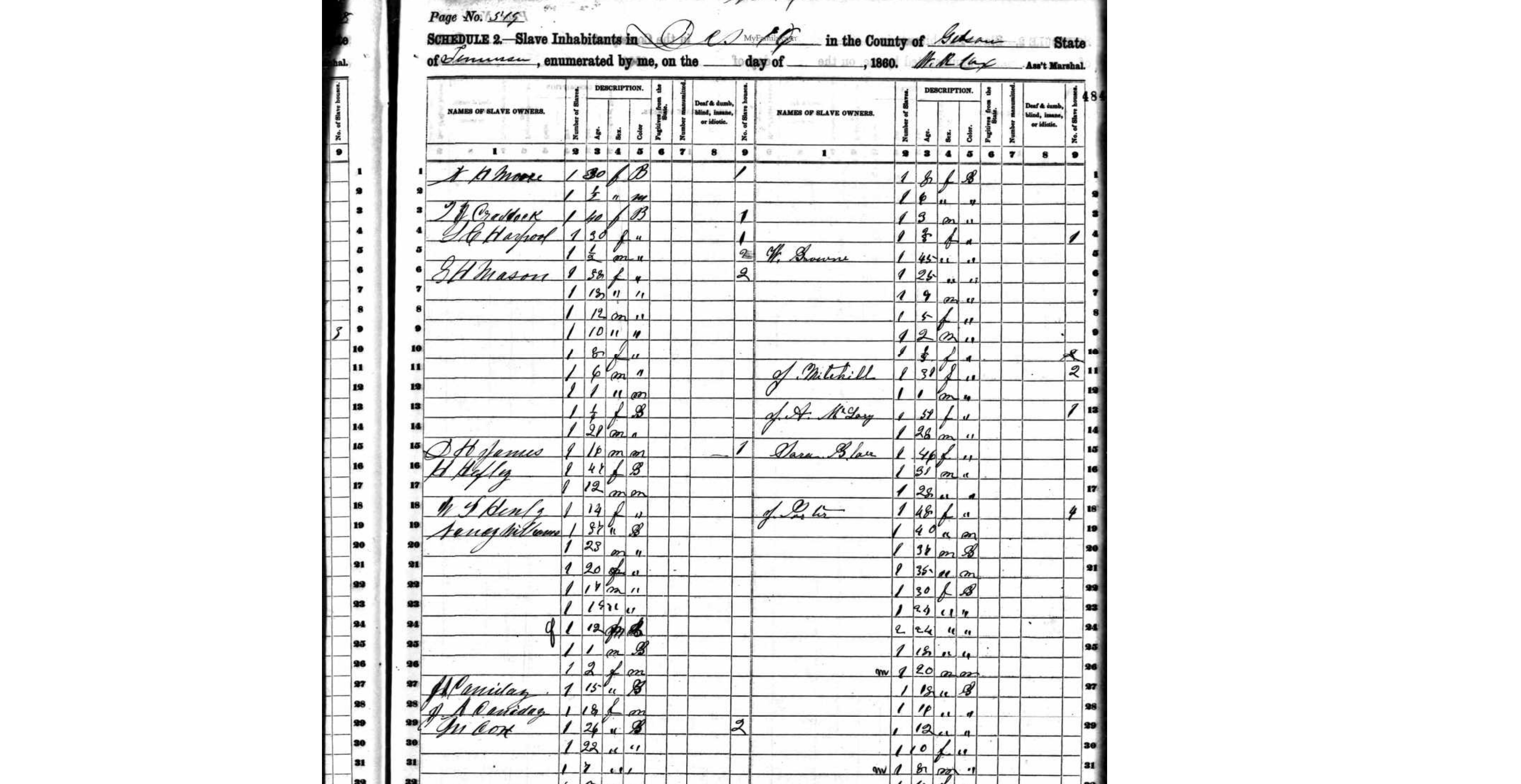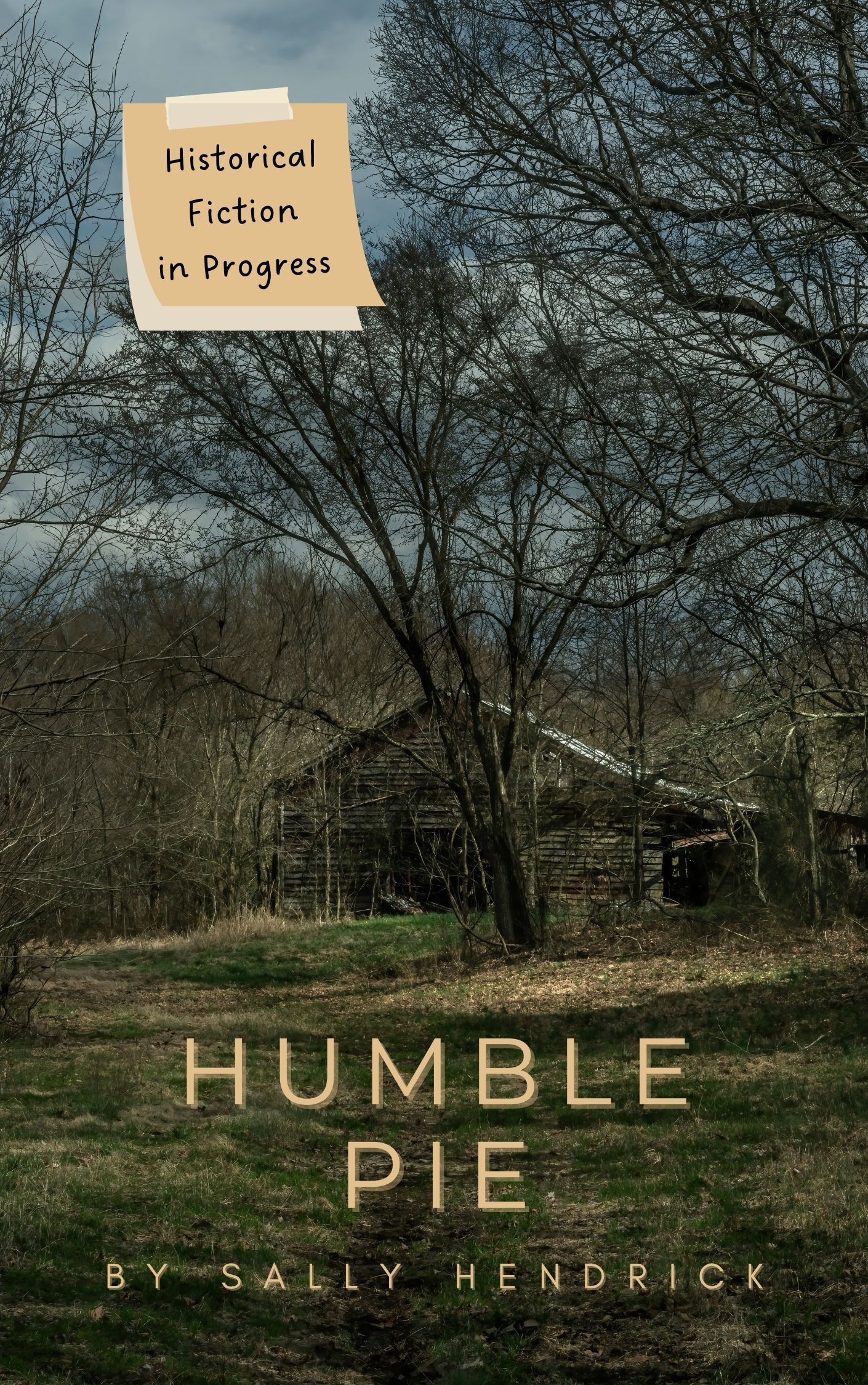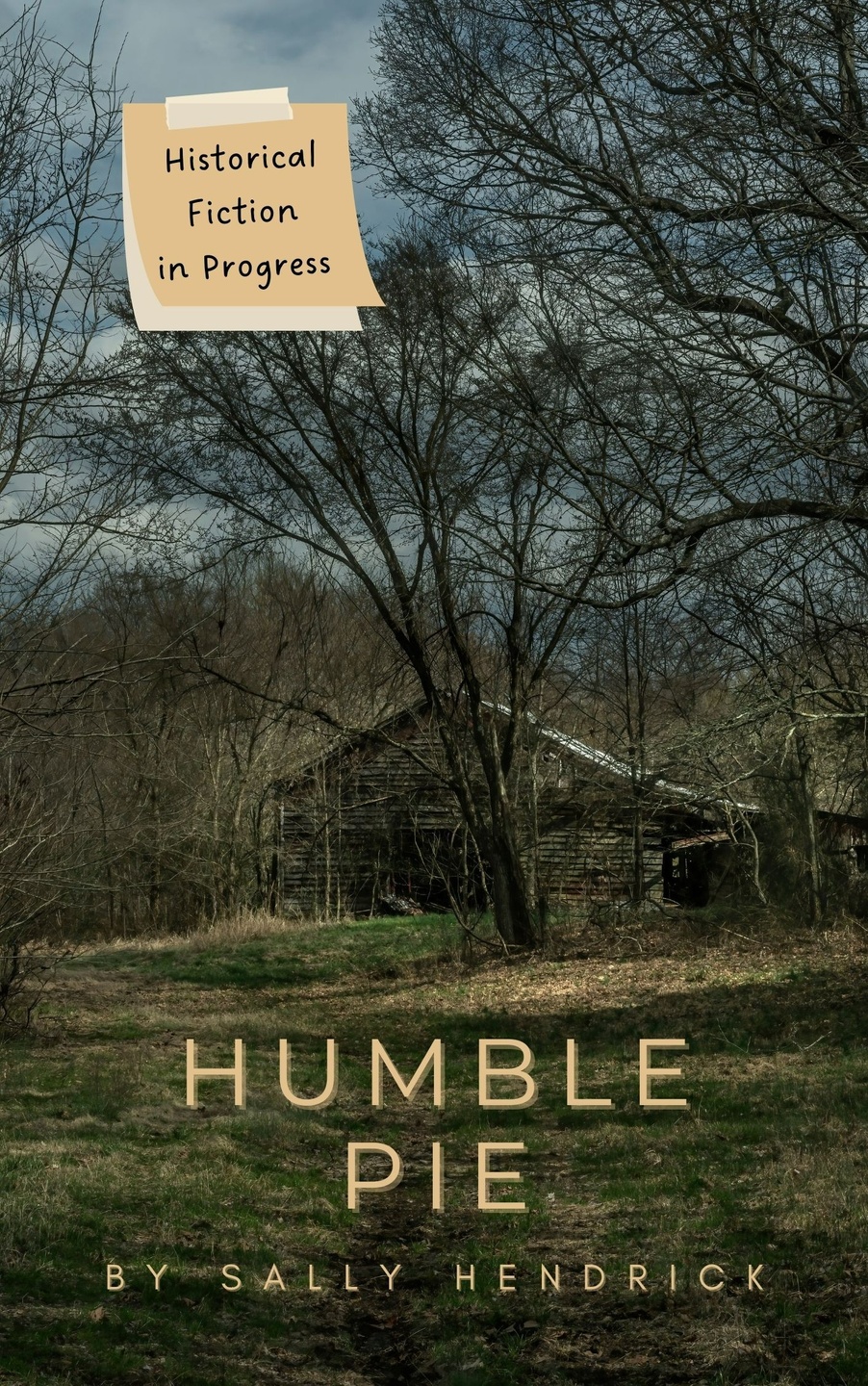by Sally Hendrick
Photos ©️John Partipilo Photography
Have you ever had a suspicion about something in your ancestry?
You hear stories, recall memories, meet distant or long-lost relatives, maybe do some genealogical research...when all of sudden, it comes to you. It's a hunch that has swarmed around you your entire life. You haven't been able to put your finger on it...until now. No one ever told you this, and you never got any answers when you asked questions, tiptoeing around the taboo topic.
Then it's there in front of you in black and white.

I felt numb but not surprised when I discovered my grandmother's grandfather's name in that registry as a slave owner. It is the 1860 Slave Registry from Gibson County, Tennessee, published on the USGenWeb Archives.
That night, I woke up around 1 or 2 am. I usually wake up at least once in the night, and for some reason, I looked at my phone and clicked on something, maybe an email from Ancestry. That's when I saw something about a slave registry. It had never shown up before when I was patching my family tree together. Fair enough, I hadn't really gone back that far in my research for the book yet, but I had at least put the names on the family tree.
I switched over to Google and typed in a few keywords, found an archives site that looked promising, then clicked the screen in the search bar of the registry. I typed in the maiden name of my paternal grandmother, the one I'm writing about in my pending novel, and scrolled the dropdown box to Gibson County.
Loading: Slave Owner Index...

There he was: T.J. Craddock, named after the 2nd President of the United States, Thomas Jefferson, a slave owner and father of Sally Hemings' children. My great-great grandpa is no relation to the former president, but it was fairly typical for white southerners to name their boys after prominent men in history, like George Washington, Robert E. Lee, or Benjamin Franklin, all of which were the first and middle names of many of my ancestors. Some of my relatives in the 20th century eventually changed their names officially to distance themselves from the past naming conventions.
In fact, one of my father's first cousins was given one of these famous names as his first and middle names. He went by a nickname though, and before his wife would agree to marry him, she made him change his name legally in order to not have his given name on the wedding invitation. She was embarrassed. Thank goodness somebody took a stand back in the 1950s, even if it was minor in the grand scheme of things.
This discovery changes everything, yet it changes nothing.
I started to poke my husband to tell him what I'd found when I remembered it was the middle of the night. So, I popped out of bed to the living room to read some more without disturbing his sleep.
Then doubt and fear set in about revealing this information. I quickly came back to my senses and kept reading.
Who was this 40-year-old woman? What was her name? Where did she sleep? Did she have any children, nieces, or nephews? Who today could be missing her in their family tree? Can we connect the dots?
Do I try to incorporate this new historical fact into the book's story? Maybe...but I'm not sure if my grandmother even knew this for sure. Her grandfather was dead before she was born. Or maybe everyone she knew had this shame in their family, but it wasn't considered shameful back then...or was it? After all, the days of Jim Crow were in full force by the time my grandmother was born in 1906.
As open and honest as I like to be, this is a formerly-hidden family secret that I'm just now learning about. Is it safe to admit it out loud? I look to the left, and people tell me I'm brave. I look to the right, and people tell me to shove my stories up my behind, to stop talking about it. If you know me well, you know I don't have time for any pussy-footing nonsense. I also don't listen to other people, unless they've done something to earn my respect and attention.
It's not like someone can't figure it out for themselves if they really want to. Genealogy data is not protected. It's public information that takes a long time to sort through and patch together by using the information you have and matching it up with information that others have shared. Even with it digitized on Ancestry's website, it takes a lot of time to play the family tree game. With DNA testing markers added to people's online profiles, long-locked doors are being opened for the first time to prove bloodlines.
And if anyone thinks their southern family was not a part of this piece of history, they may never know because most of the registry contains a lot of initials and alternate spellings. People knew what they were doing was wrong.
Enough of the denial. We're way past the first phase.
I can't take tthe denial anymore, the unjust in this world, the gaslighting of generational trauma stories. If I hear someone else say in an argument to a person of color, "Get over it. You're better off than you were," I think I'll lose my mind. And then to have the same people deny their own racist behavioral tendencies to refer to a black person they're frustrated with as the n-word behind their backs but in front of other white people.
Because it's okay to say it in front of other white people, huh? Get outta here with that!
I. Will. Call. It. Out. Every. Time.
You wanna know why? Because I got called out when I was 19 years old, and it changed the trajectory of my life. The dismissal of the leavings of our past transgressions (as a nation, not just individual people or places) does not allow any of us to fully heal and come together with a clean slate.
And that means a clean slate for nearly every policy and law put into place in this country. It's a backlog of transgressions, and it's a messy web to untangle.
Welcome to the Jim Crow You Don't Know
The book I'm writing, Humble Pie (the Jim Crow you don't know...or what you don't know about Jim Crow...I cannot decide which tagline, if any) is historical fiction based on my grandmother's life in the early 1900s. Her name was Sudie.
It's historical because I'm using real places, happenings, and sentiments of the early 1900s, verifying at every step that anything I mention was actually already invented and in use at the time. I've had to stop and ask myself questions, such as:
- What material things suited a wealthy southern family?
- What would you find at the local market, clothing, or toy store?
- What music was popular at the time? Sometimes down to the month and day.
- Where exactly was the church located?
- What was the local shoe store called? Who owned it?
- Did the rail station cater to moving goods and passengers around at the same time?
- Where did the east-west railroad travel versus the north-south rail line?
The fictional part? That's where I am filling in the blanks to make a compelling, descriptive, and believable story that demonstrates what could have happened based on the circumstances of the day and on true stories I've been collecting my whole life..and writing feverishly for the last 20 months.
Stories from my grandmothers, my mother, my own stories, and the ones of the black women who raised me are weaved together to form a picture of oppression, joy, depression, and prosperity rolled into a psychological tale of two best friends not allowed to be friends in public.
When The Help Meets The Liberation of Lord Byron Jones
Growing up in the 1970s in West Tennessee in strawberry and cotton country, I could feel the tension in the air when it came to the black and white ghosts of Jim Crow. They lingered everywhere. You could see it in the property lines, the long-standing family businesses, and in the porcelain-faced pageant queens selected by 'neutral' judges that never once picked a black girl to be in the royalty...not back then anyway.
I remember hearing that anything past Central Avenue was 'N*****-Town', a common phrase for the area where black people were 'allowed' to live. The redlining of streets and neighborhoods in a place that took 5 minutes to encircle by car was blatantly obvious, at least I thought so because I overheard plenty of conversations about societal rules and how things had to be.
Even though I grew up with a 'colored toilet' in our house built in 1977, I didn't know that's what it was considered to be. I just thought it was the laundry room bathroom and the side door, not the colored toilet and the servants' entrance. Imagine when I realized that the steps to the kitchen were the servants' steps, too. No wonder our 'help' wouldn't go up and down the formal, front staircase that greeted people at the main entrance, something that I noticed often in their tippy-toe behavior around the house.
Reading The Liberation of Lord Byron Jones for a high school assignment woke me up to things that happened in my hometown not too long before I was born. Horrific things. In fact, one of the main characters from the book by Jesse Hill Ford was based on a black woman that was alive when I was in school, and I knew who she was. At least, I knew she drove a big, blue sedan all over town, and I also heard tales of her taste in white married men, just like in Ford's novel. Coincidentally, the 1970 movie was filmed at my great-uncle's plantation house down the road, and it starred Lee Majors, also known as The Six Million Dollar Man.
Then The Help came along in 2011 to explain the remnants of the 1960s that I experienced in my childhood in the 1970s but couldn't clearly see what was going on at the time. I've probably watched that movie 10 times. I was that little girl, just a decade later.
You is smart. You is kind. You is important.
But Humble Pie is different. I'm not sure there's anything else quite like it written yet. At least, that's what my writing coach tells me. If you're interested, grab a free chapter on my website, putting you on the waitlist for when it's published. As soon as it's out, my wait listers get first dibs, and pre-buyers get my personal stories, photographs, and a sneak peek at the making of this novel called The Baking of Humble Pie. Even if you don't buy the book now, your moral support in helping me get it completed is much appreciated.





